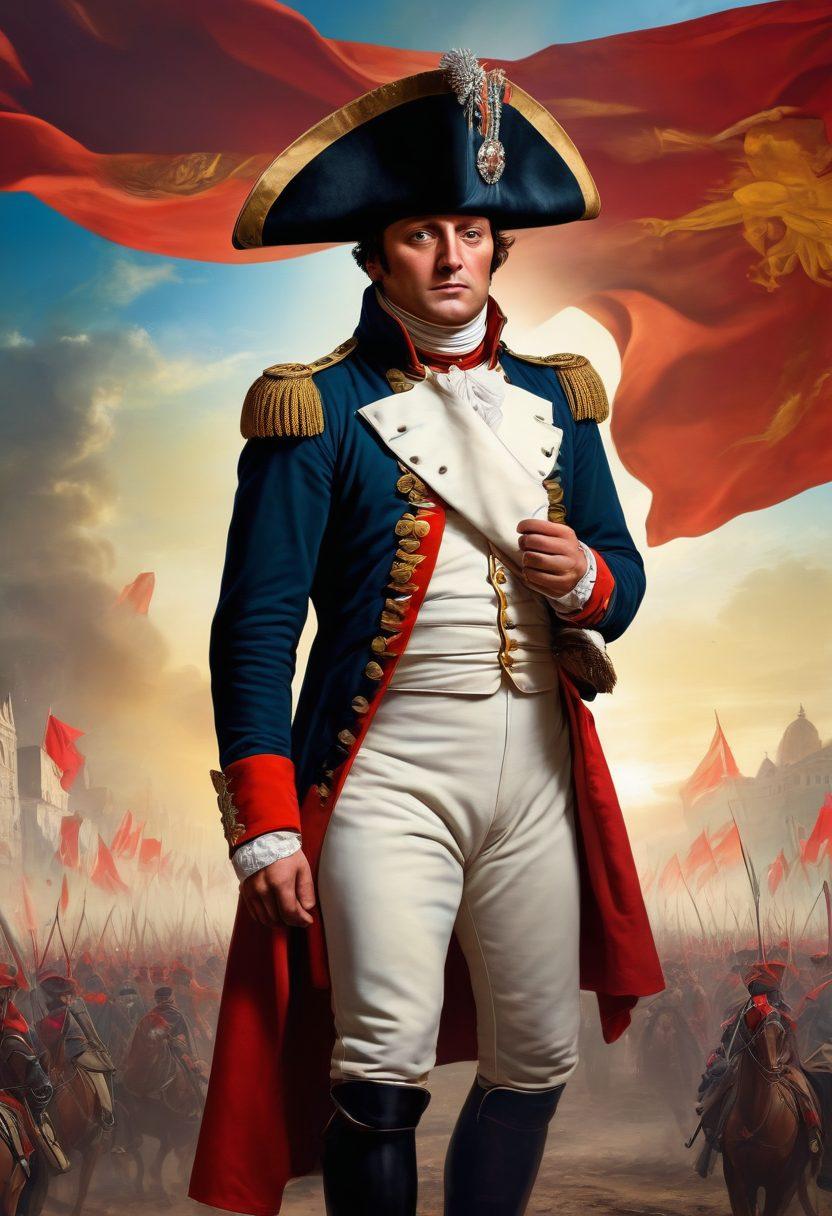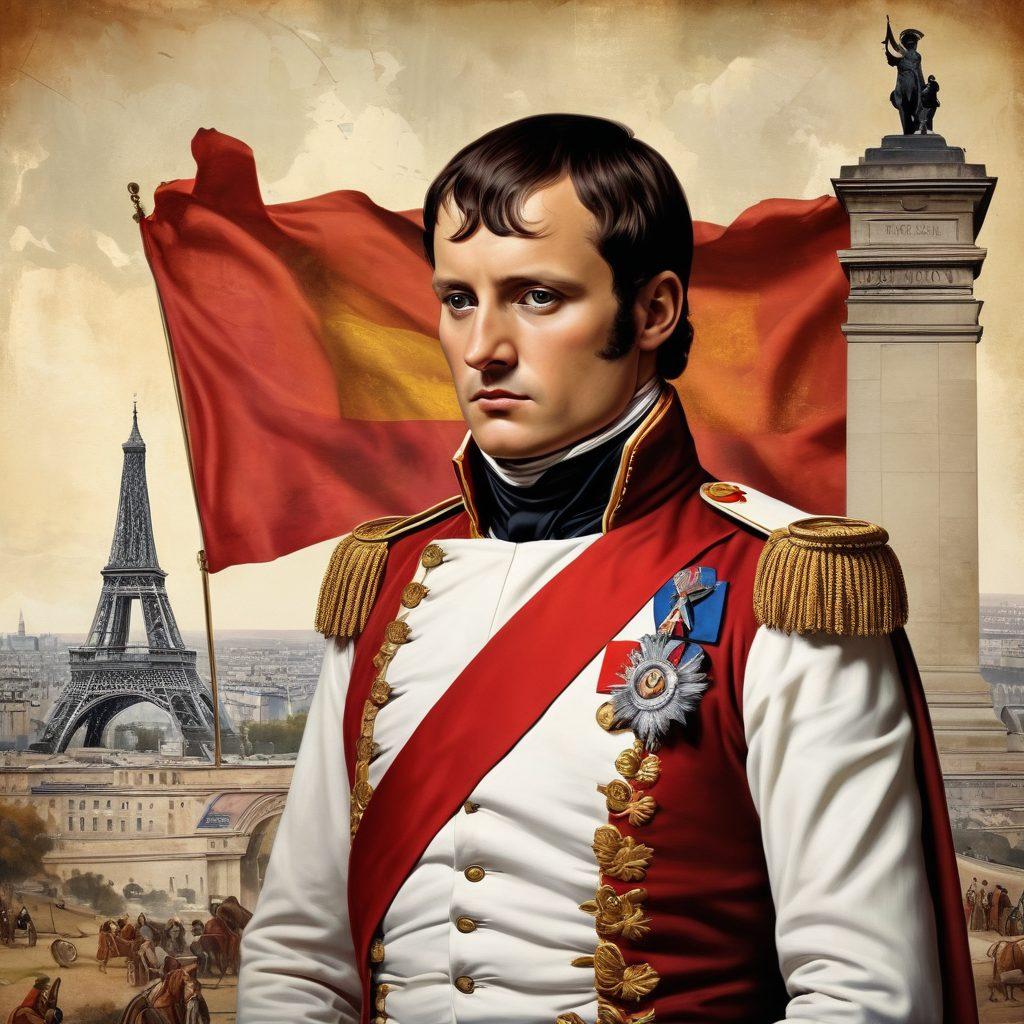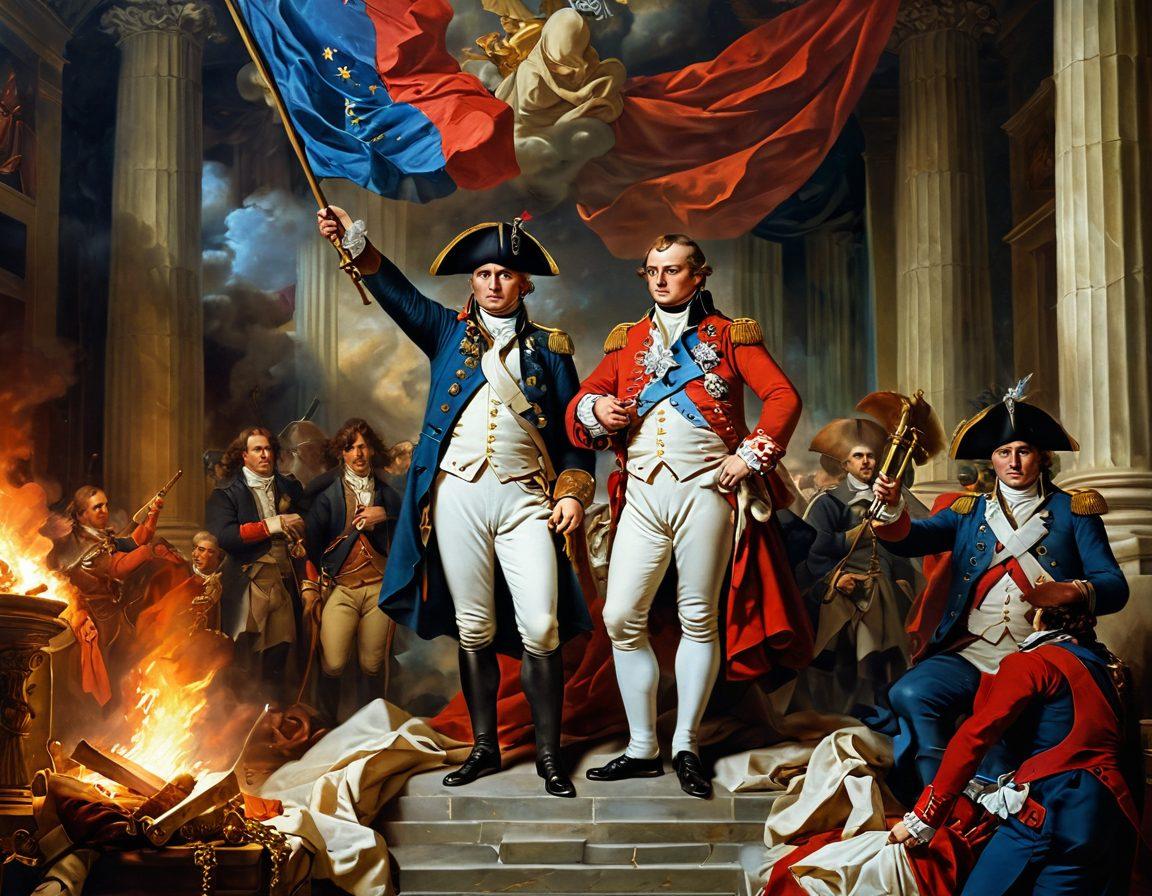Unraveling the Legacy: Napoleon Bonaparte’s Impact on European History and Military Strategy
When we think of the historical figures who have altered the course of European history, few names shine as brightly as Napoleon Bonaparte's. The French leader, a product of the tumultuous times during and after the French Revolution, emerged as a military strategist whose tactics would reshape not just the battlefield, but also the very fabric of European society. So, what was it about Napoleon's campaigns that propelled him to the forefront of military history, and how did his political influence echo through the ages? Sit back as we explore the strategies that changed European warfare forever, revealing the legacy of Napoleon in ways that might surprise you.
To fully appreciate the genius of Napoleon Bonaparte, we must understand the context in which he operated. Picture Europe at the turn of the 19th century—a patchwork of feuding states, many embroiled in conflicts that harked back centuries. Enter the French Revolution, a movement that not only toppled a monarchy but also sparked a thirst for change across the continent. Napoleon seized this moment, leveraging the fervor of revolution to rebuild France into a formidable empire. His rise wasn’t just about conquest; it was about redefining leadership and instilling a new sense of national pride that would serve as a powerful motivation for his troops.
Napoleon’s military tactics were revolutionary. He triumphed where others faltered by employing strategies that focused on swift maneuvering, surprise attacks, and the efficient use of resources. His famous quote, "Victory belongs to the most persevering," encapsulates his relentless spirit. One of the key elements was his ability to maintain a strong communication line with his generals, ensuring that every move was precisely orchestrated. This shift from static warfare to dynamic operations became the gold standard for future military strategists. Isn't it fascinating how just a few principles can redefine the nature of conflict?
As we delve deeper into Napoleon's reign, we encounter the Napoleonic Code, a pioneering legal framework that transcended military prowess. This code helped to standardize laws across the vast territories that comprised his empire, showing that Napoleon was as much an empire builder as he was a military mastermind. For the French people and the broader European community, the code represented a break from feudalism and a step towards civil rights—gains that reverberate in modern legal systems. How often do we consider the lasting impact of such legislation beyond the battlefield?
In analyzing Napoleon's legacy, we see a multifaceted character who was more than just a conqueror. His political influence and military tactics created a new era in the history of France and indeed all of Europe. The Napoleonic Wars may have left scars on the continent, yet they also sowed the seeds for the modern European state system we recognize today. Napoleon's leadership qualities, his unparalleled strategies, and even his inevitable downfall serve as lessons for future generations. What can today's leaders learn from the enigmatic figure of Napoleon Bonaparte, a man whose aspirations stretched beyond the horizon, yet ultimately painted a complex portrait of triumph and tragedy?
The Multifaceted Legacy of a Revolutionary Leader: Napoleon's Enduring Influence
When we think of revolutionary leaders who have shaped the course of European history, few names resonate as powerfully as Napoleon Bonaparte. A figure shrouded in both admiration and controversy, Napoleon's multifaceted legacy continues to capture the imagination of historians, political analysts, and everyday people alike. How did this ambitious French leader, who rose from humble beginnings, transform the geopolitical landscape of Europe and create a lasting influence that we still feel today? From the ideals of the French Revolution to the skillful execution of military tactics during the Napoleonic Wars, Napoleon's journey is a testament to the power of vision and leadership.
Napoleon Bonaparte was not only a soldier but an empire builder with a penchant for strategy. How did he manage to gain such expansive control over much of Europe, and what does his military genius tell us about leadership today? His campaigns were marked by boldness and innovation, incorporating lessons learned from earlier battles while developing his own unique approaches to warfare. One might wonder, how can we draw parallels between Napoleon's military tactics and modern-day leadership challenges? Just like Napoleon, today's leaders must adapt to new circumstances, anticipate their opponents' moves, and inspire their followers to achieve extraordinary feats.
The history of France is indelibly marked by the revolutionary fervor of the late 18th century, and Napoleon's rise coincided with a transformative period that saw the birth of the republic. His implementation of the Napoleonic Code became a cornerstone for legal systems in many nations, reflecting his significant political influence beyond the battlefield. The profound effects of the French Revolution spurred debates on governance, citizenship, and law that resonate even in contemporary discussions about democracy. Is it conceivable that a single leader could spark such vast change in our understanding of rights and responsibilities? Napoleon certainly believed so, and his legacy challenges us to reflect on what leaders can achieve when they confront the status quo.
Yet, Napoleon's reign was not without its pitfalls. The costly Napoleonic Wars, while demonstrating military prowess, eventually led to his downfall and subsequent exile. It begs the question: can ambition ever be too great? This duality within the legacy of Napoleon—his remarkable achievements and eventual failures—serves as a poignant reminder for modern leaders to balance vision with caution. In navigating the complexities of leadership, can we glean lessons from both his triumphs and missteps? His story serves as a blueprint for understanding the intricate dynamics of power, ambition, and the consequences of overreaching.
Today, as we analyze Napoleon's enduring influence on military strategy and European history, we recognize that his story is far more than a tale of battles won and lost. It challenges us to think critically about the nature of leadership and the impact of our decisions on those we lead. The legacy of Napoleon continues to inspire new generations of thinkers, politicians, and military strategists. How can we harness this multifaceted legacy to confront the unique challenges we face in our rapidly evolving world? Through historical analysis and ongoing examination of Napoleon's life, we can learn not only about the past but also about ourselves and our potential for creating meaningful change.
From the French Revolution to the Napoleonic Code: The Blueprint of Modern Governance
When we think of towering figures in European history, few names resonate as powerfully as that of Napoleon Bonaparte. This indomitable French leader, often celebrated as an empire builder, transformed the socio-political landscape of France and Europe following the French Revolution. His digital footprint in the annals of history isn't solely marked by his military conquests but also by his lasting influence on governance through the Napoleonic Code. How did this single man conjure an empire that would shift the paradigm of law and leadership? Let’s delve into this compelling journey and uncover the blueprint that Napoleon laid down for modern governance.
The French Revolution was more than a mere backdrop for Napoleon—it was the catalyst that propelled him to the forefront of historical figures. Amidst the chaos of radical change, he emerged with a unique vision! Imagine the whirlwind of revolutionary fervor, the cries for liberty and equality, all while a determined military strategist navigated through it like a chess master on a grand board. Napoleon recognized that the hunger for change was more than just a societal desire; it was a window of opportunity. As he rose to power, he understood the need for a systematic approach to governance and a legal structure that the new republic desperately required.
The Napoleonic Code was Napoleon's answer—a comprehensive set of laws that not only standardised legal frameworks across France but also set a precedent for many nations around the world. It embodies ideals of liberty, equality, and fraternity, which echoes the very essence of the French Revolution. But, can laws truly encapsulate justice? In Napoleon’s vision, they could! His code redefined property rights, civil liberties, and legal equality, creating a unified system that replaced individual fiefdoms with state-centric governance. This was perhaps one of his most significant contributions, as it fortuitously influenced the legal systems of various countries even to this day.
Yet, it’s imperative to acknowledge that Napoleon's reign was not devoid of controversy. Critics argue that while he unified and modernized administration, he also fostered an era of authoritarian rule under his command. The balance between progress and liberty is precarious! Was his iron-fisted leadership justified in the quest for a structured state? The discussions surrounding these themes are what make the historical analysis of Napoleon both riveting and multifaceted. His leadership is a fascinating paradox—simultaneously revolutionary yet authoritative, lifting France into a new age while wrestling with its revolutionary ideals.
In wrapping this exploration of Napoleon Bonaparte's legacy, it’s evident that his impact on European history extends beyond his victories on the battlefield. The napoleonic campaigns showcased his military tactics that outwitted foes but the real triumph lay in how he reshaped governance. Looking back at his life prompts us to consider difficult questions about leadership and legacy. What attributes define great leaders, and how do they leave an indelible mark on society? Through the lens of Napoleon's story, we see the intricate tapestry of ambition, strategy, and governance woven into the history of France and beyond, much like the enduring influence of the Napoleonic Code that remains relevant in contemporary discussions of law and order.


